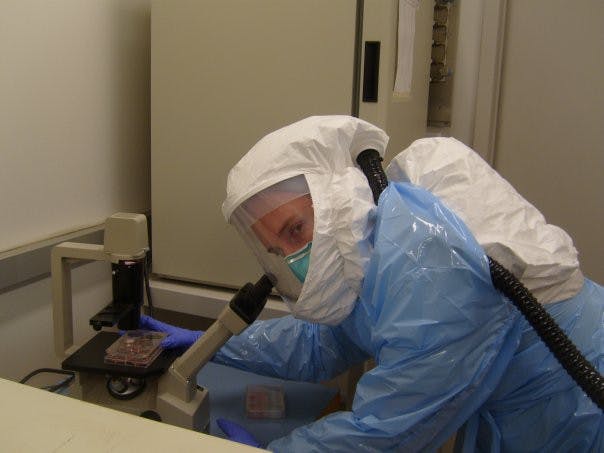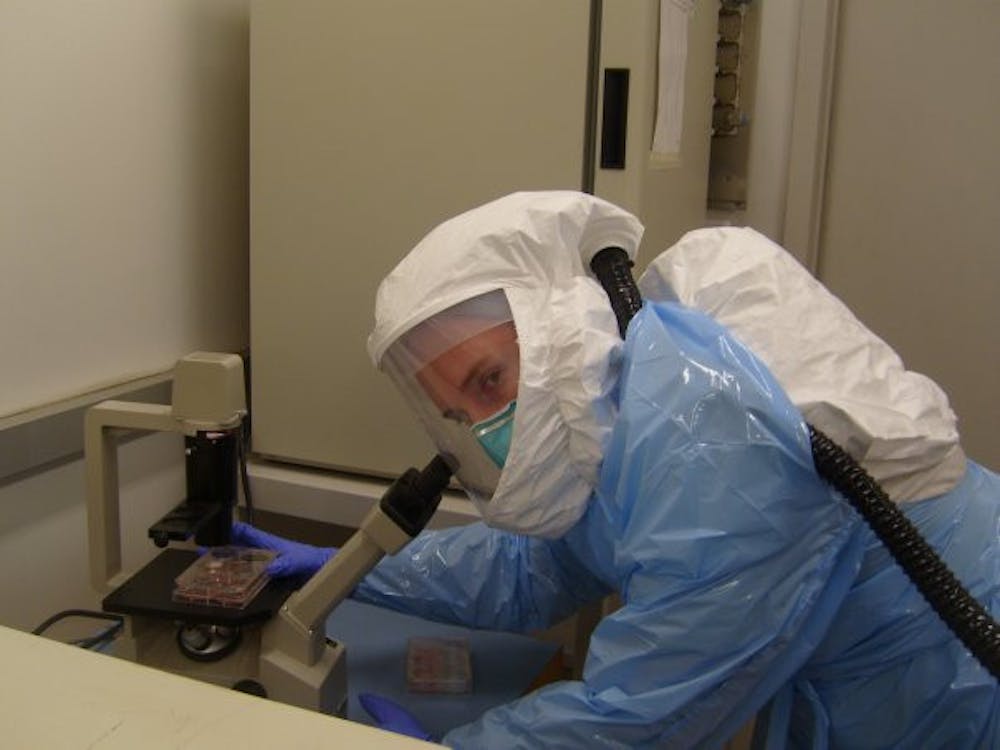A Seton Hall professor and virologist said the University should consider a switch to remote learning after a rise in cases near the South Orange campus.
Dr. Brian Nichols, a virologist and associate professor in Seton Hall’s department of biological sciences, said he believes further measures should be taken. After a total of 37 Seton Hall students tested positive for COVID-19 in the month of October, a significant increase in new cases compared to September.

Nichols said he thinks the current number of positive cases at Seton Hall would warrant a transition to fully remote learning, adding that he hopes Seton Hall will “at least start thinking about reducing density further.”
According to Seton Hall’s COVID-19 dashboard, 44 cases have been detected at the University since fall reopening, more than half of which occurred in the past month.
“What’s concerning is that it’s this bad in the initial period [of the winter],” Nichols said. “Our guard needs to be higher than it was at the beginning of the semester.”
In a press conference last Thursday, New Jersey Gov. Phil Murphy said the second wave of COVID-19 cases in New Jersey has already begun and did not rule out the possibility of a new statewide curfew for businesses.
Dr. Nichols said he agrees that the second wave has begun and that it is in its early stages.

“If the virus is expanding now in October, it’s really going to pick up steam in December and January,” Nichols said, citing the tendencies of other coronaviruses to transmit better in the winter.
“Seton Hall is taking all of the appropriate actions,” Scott Egelberg, coordinator of South Orange’s Office of Emergency Management, said. “We need to continue being vigilant.”
Nichols said that while Seton Hall has done better than other universities, he believes further measures to reduce density on campus should be taken.
“At the bare minimum, we have to start thinking about allowing faculty members to transition their classes into being fully remote,” Nichols said.
A total of 3,348 tests have been administered by the University, according to the COVID-19 dashboard.
Nichols said that more testing needs to be conducted at Seton Hall to get a handle on how much of the virus is actually on campus.
Nichols also said he would like to see “a more active effort to screen Seton Hall’s commuter-student population, faculty and staff,” noting that it is the responsibility of faculty members to get tested, which currently would “entail standing in line at a clinic that would take hours to process.”
In an email addressed to students and staff, Seton Hall’s Health Intervention and Communications Team thanked the University and local health professionals for their work.
“Mask wearing, social distancing and hand washing are all proven keys to keeping each of us, and those around us, safe and healthy,” the email said.
Louis Motta can be reached at louis.motta@student.shu.edu





